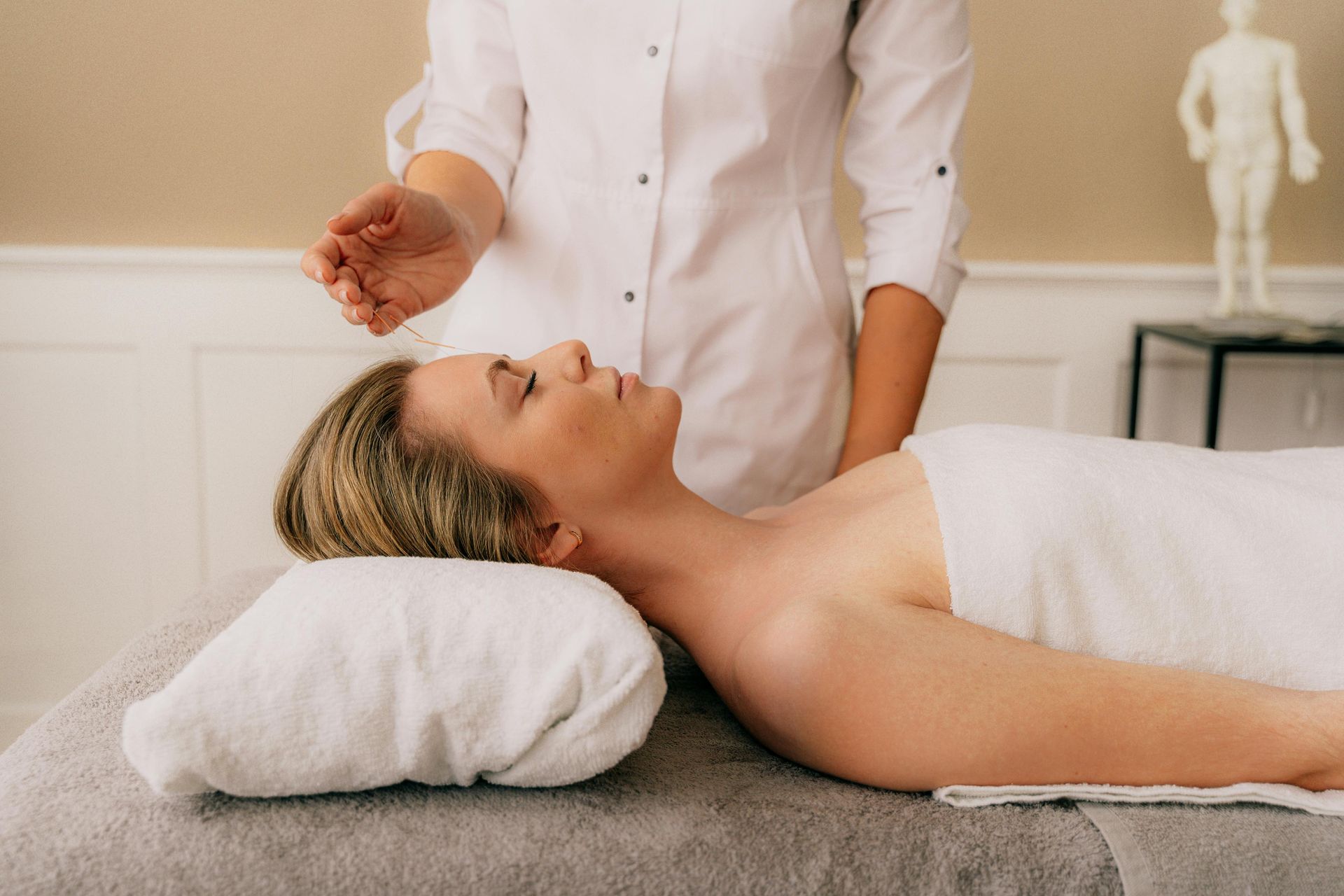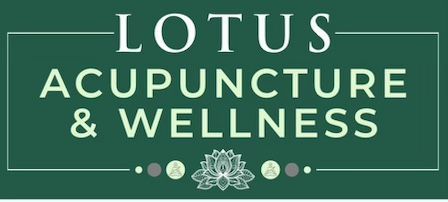Welcome to the
world of acupuncture, an
effective, holistic healthcare approach that promotes
natural healing, restores balance, and addresses a wide range of
physical, mental, and emotional health concerns. Around the world,
millions of people have experienced the
benefits of this safe, non-invasive medical practice. Acupuncture is commonly used to treat
respiratory issues, digestive disorders, emotional stress, and chronic pain—helping individuals regain their health and well-being.
What is Acupuncture?
- Acupuncture is an ancient yet scientifically recognized medical system that takes a comprehensive approach to diagnosing and treating health conditions. Rather than focusing on isolated symptoms, acupuncture treats the whole person—body, mind, and spirit—to restore the body's natural balance and function.
- Today, acupuncture is widely accepted in healthcare systems worldwide and is used as a complementary therapy alongside conventional medicine. It is valued for its effectiveness and safety in supporting the body's natural healing process.
- Acupuncture involves the use of extremely fine, sterile needles, which are inserted into specific points on the body. These needles are as thin as a strand of hair, and while some individuals may feel a slight sensation, most find the experience relaxing and rejuvenating.
- Many patients report feeling a deep sense of balance, relief, and well-being after a session.
- Along with traditional acupuncture, practitioners may use additional healing methods to enhance the therapeutic effects, including:
- This involves burning medicinal herbs near specific acupuncture points to warm the body, stimulate circulation, and boost energy levels.
- Herbal formulations may be prescribed to support acupuncture treatments, helping to balance the body's internal systems and enhance overall wellness.
- Tui Na is a specialized form of Chinese medical massage that helps relieve tension, improve circulation, and support musculoskeletal health.
- This technique uses mild electrical currents applied to acupuncture needles, which can enhance pain relief and nerve function for specific conditions.
- A thorough health history review to understand your unique health concerns
- A physical examination, which may include tongue and pulse diagnosis
- A personalized treatment plan based on your individual needs
- A relaxing session where ultra-thin needles are gently inserted into key points on the body
- Acupuncture sessions can range from 30 to 90 minutes, and the number of treatments needed varies depending on your condition. Some individuals experience relief immediately, while others may require a series of treatments to achieve lasting results.
- Acupuncturists use traditional diagnostic methods, such as tongue and pulse examination, to gain insight into your overall health and internal imbalances. These tools help identify the root causes of symptoms, allowing for a more precise and effective treatment plan.
- Acupuncture is a safe, gentle, and minimally invasive therapy. Most people find treatments to be calming and pain-free, often leaving the session feeling deeply relaxed.
- Yes! Acupuncture is a gentle and effective therapy for children. It can help support their immune system, manage digestive and respiratory issues, and promote overall wellness.
The Science Behind Acupuncture: How It Works
Acupuncture is believed to stimulate the body’s natural healing mechanisms, helping to:
✔ Reduce pain and inflammation
✔ Enhance circulation and nerve function
✔ Balance hormones and neurotransmitters
✔ Support immune function and overall well-being
In addition to needle therapy, acupuncture may include cupping, heat therapy, or herbal treatments to maximize results.

Preparing for Your Acupuncture Session
To get the most out of your treatment, follow these simple guidelines:
✔
Wear loose, comfortable clothing
✔
Eat a light meal before your session
✔
Stay hydrated
✔
Arrive early to discuss any health updates with your acupuncturist
✔
Keep a symptom diary to track progress
After your session, try to rest and relax, allowing your body to fully absorb the benefits of acupuncture.
Does Insurance Cover Acupuncture?
Insurance coverage for acupuncture varies by provider and location. To determine your coverage, ask your insurance provider:
✔
Is acupuncture covered under my plan?
✔
How many sessions are covered per year?
✔
Do I need a referral from a doctor?
✔
What is my co-pay per session?
✔
Does my plan have a deductible for acupuncture?
What Conditions Can Acupuncture Treat?
Acupuncture has been recognized by major health organizations, including the World Health Organization (WHO), Harvard Medical School, and Johns Hopkins Medicine, as an effective treatment for a wide range of medical conditions.
Pain Relief & Musculoskeletal Health:
- Chronic back, neck, and joint pain
- Arthritis and muscle stiffness
- Sports injuries and muscle spasms
- Carpal tunnel syndrome
Mental & Emotional Well-Being:
- Stress, anxiety, and depression
- Insomnia and sleep disorders
- Post-Traumatic Stress Disorder (PTSD)
Digestive & Metabolic Health:
- Irritable Bowel Syndrome (IBS)
- Acid reflux and ulcers
- Nausea, bloating, and constipation
- Weight management support
Women's Health & Reproductive Health:
- Menstrual pain and irregular cycles
- Premenstrual Syndrome (PMS)
- Menopause symptoms
- Infertility and pregnancy support
Neurological & Autoimmune Disorders:
- Stroke recovery and Parkinson’s symptoms
- Trigeminal neuralgia and Bell’s palsy
- Fibromyalgia and chronic fatigue syndrome
Respiratory & Immune Health:
- Asthma and allergies
- Chronic cough and sinus infections
- Common colds and bronchitis
Cardiovascular & Circulatory Health:
- High blood pressure (hypertension)
- Heart palpitations and circulation issues
Skin Conditions & Detoxification:
- Acne, eczema, and psoriasis
- Smoking cessation and addiction recovery
- Alcohol and drug detoxification support
How Are Acupuncturists Trained?
Acupuncturists are highly trained healthcare professionals who complete three to four years of graduate-level education in accredited programs. Their training includes:
✔
Anatomy and physiology
✔
Traditional Chinese Medicine principles
✔
Acupuncture techniques and diagnostic methods
✔
Herbal medicine and clinical practice
Acupuncturists must also pass national certification exams and obtain state licensure to practice professionally.
Becoming a licensed acupuncturist requires far more than just a few weekend workshops—it's a rigorous and demanding path that most people don’t realize. For starters, the master’s degree in acupuncture alone involves over 160 academic credits. To put that into perspective, that’s roughly four times more than a typical MBA program (which averages around 40 credits), and significantly more than most physical therapy programs (which come in around 90 credits).
Dr. Jasmin Movassaghi completed a four-year doctoral program in acupuncture and Chinese medicine, along with a specialized degree in Chinese herbology. When you include her undergraduate prerequisites, doctoral coursework, and multiple advanced certifications, she’s completed well over 300 academic credits.
Those four foundational years of acupuncture training included:
- Traditional Eastern medical theory
- Western biomedical sciences
- In-depth anatomy and physiology
- Extensive supervised clinical internships
- Targeted techniques for treating common health conditions
And that was all before passing four national board exams and becoming licensed to practice in both New Hampshire and Massachusetts.
This isn’t being shared to boast or sound more important than anyone else—it’s being shared so you can feel fully confident that when you're on Dr. Jasmin's table, you're in the care of someone with a deep, comprehensive education and serious clinical expertise (even if she does tell dorky jokes and sprinkle emojis into her texts!).
Oh—and let’s not forget continuing education. The learning never stops in this field. ✨
It’s no wonder so many people are surprised at what it really takes to become an acupuncturist. The truth is: it’s a lot. But for those who are passionate about healing, it’s absolutely worth it.
Experience the Benefits of Acupuncture Today
Acupuncture is a time-tested, scientifically supported therapy that can enhance well-being, reduce pain, and restore balance in the body. Whether you are seeking relief from a specific condition or looking to improve overall health, acupuncture offers a safe and natural healing solution.
If you’re ready to explore
the transformative benefits of acupuncture, schedule a consultation with a
licensed acupuncturist today!
A Safe, Natural, and Effective Healing Approach

Acupuncture is proven to be effective for a wide range of medical conditions, offering a safe, drug-free approach to health and well-being. As research continues, acupuncture’s role in integrative medicine will only expand.
If you’re looking for a
natural way to manage pain, stress, or chronic health issues, acupuncture could be the solution.
Schedule a consultation with a licensed acupuncturist today!


